
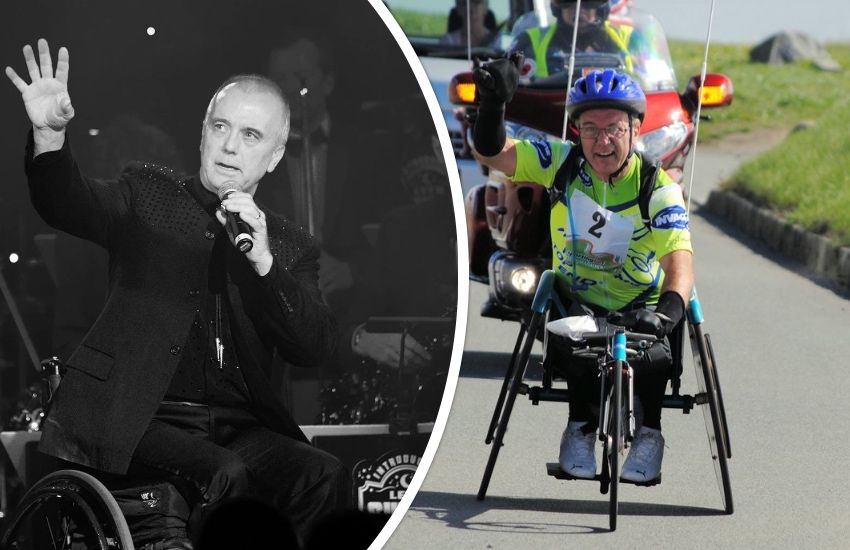

I first chanced upon Aindre Reece-Sheerin when I saw a post on Facebook about a quarry which he had cleaned and was surprised to learn that he was a wheelchair-user who had removed the debris from the quarry by hand, one bucket at a time.
A man who was once given his last rites and was later paralysed in a hit-and-run, it was impossible not to want to learn more about Aindre’s story and the events which have driven him to dedicate his life to helping others.
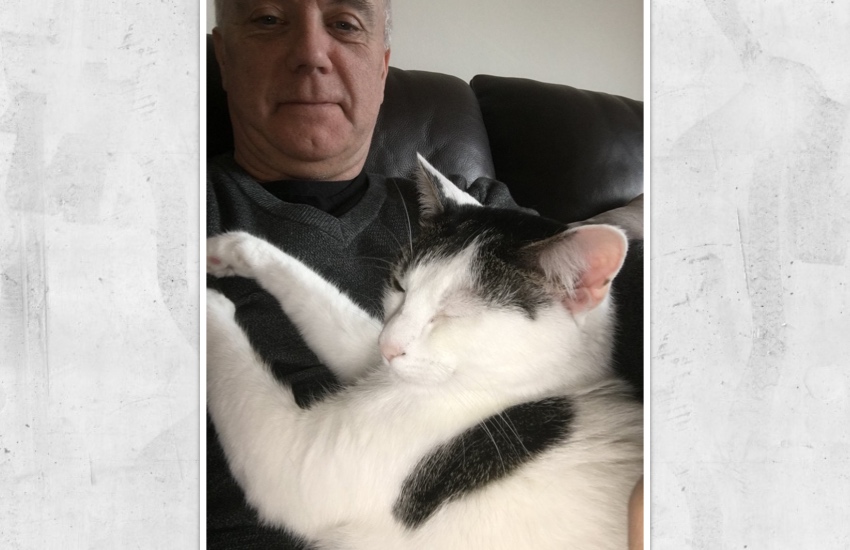
Pictured: Aindre with one of his three rescue cats adopted from Guernsey Animal Aid.
Although, understandably, not keen to dwell on the details, Aindre explained that he was injured as he made his way to university to sit his final exam in the late 1990s.
“I was on a motorcycle driving in traffic when the passenger in a vehicle suddenly opened the back door in front of me,” he said.
“I had to make a split-second choice between killing him, or taking the force of the door and in a millisecond I managed to maneuver away from him and into the door.
“I went over the top of the door and broke my back instantly; I had no feeling at all straight away and I knew what had happened.”
Whilst he will never forget the accident, Aindre forgave the people involved.
“It’s too easy to hold onto pain and angst, but those are such negative emotions and they can really drag you down,” he said.
“They had driven away and I never saw them again and never received an apology, but to await an apology would be to put conditions in the forgiveness and, in my opinion, that’s not true forgiveness.
“I believe in a man called Christ, whether he’s God or not is neither here nor there, though I believe he is, but he didn’t put conditions on forgiveness.”
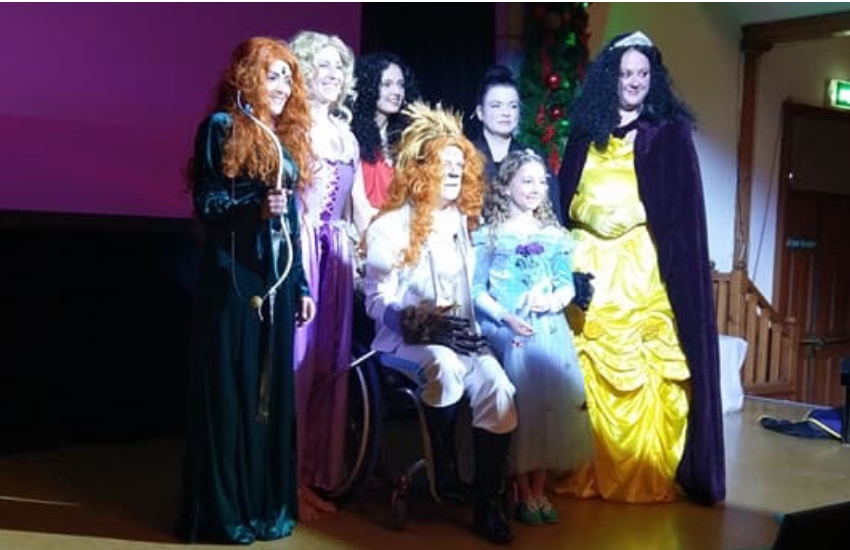
Pictured: Aindre and Kim would put on four musical theatre productions a year before the covid pandemic.
Raised as a Roman Catholic in an Irish family, faith has played a big part in Aindre’s life.
“Growing up we had five boys in one room, and I would always sing to God to go to sleep,” he said.
“I remember one night my younger brother got out of bed, went to the top of the stairs and said ‘Mummy will you tell him [Aindre] that Jesus must have heard him by now and we want to go to sleep’.
“I’ve sung for as long as I can remember and was always a part of the family. My father was a natural tenor, which is a very rare thing.”
Aindre recalled taking part in the Irish equivalent of the Eisteddford at seven years old.
“I’ll never forget the notes from the adjudicator which I can recall almost verbatum. They said that I had a thin voice, was a little too shy and that perhaps singing was not something that I should do,” he said.
“Those comments hurt me terribly because music was such a massive part of my life, and it was one of the ways which I expressed my faith.”
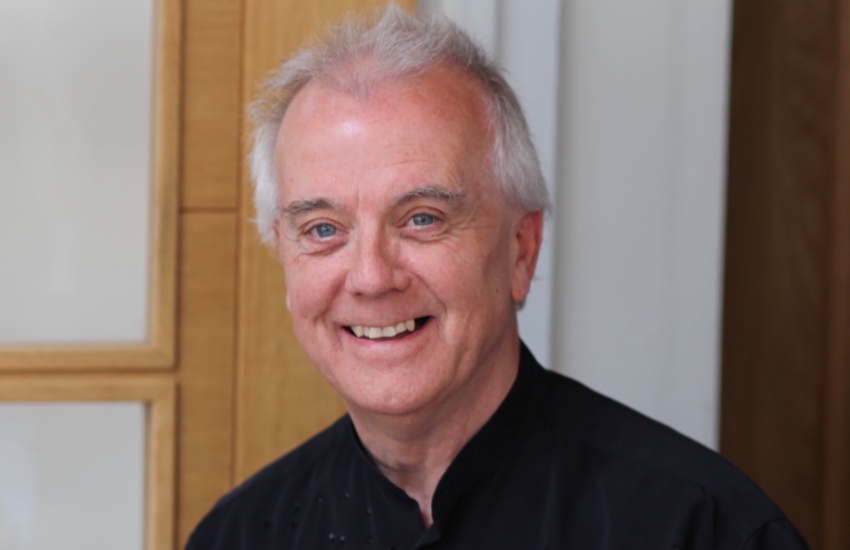
Pictured: Aindre said that forgiveness is "one of the greatest traits a human can have".
Aindre didn’t give up on singing and in his mid-thirities he trained as an operatic baritone under Corina De Vais.
“My audition piece was ‘Danny Boy’ and I remember Corina told me not to sing it ‘hackneyed’; I had no idea what she meant,” he said.
“I sang for her and then she told me to go home. The next week she called me to come back, gave me another song to sing and then told me to go home. This continued for four weeks and I didn’t see the point in continuing.
“The fifth week I took her a bunch of flowers and thanked her for her time. She asked me what I meant and I said it was clear that I wasn’t what she was looking for in a student.
“She happened to be being interviewed for something at the time and the interviewer asked who I was, her answer was that, apart from Dietric Fisher-Dieskau, she had never heard a man with a more incredible voice. I burst into tears on the spot.”
Aindre grew close to Ms De Vais, who with her English accent, reminded him of his mother. She eventually moved in with her and became her carer.
“I loved her, and I thought she was the greatest thing that ever happened to me,” said Aindre.
“She even put me through university, where I studied languages and computing as a mature student.”
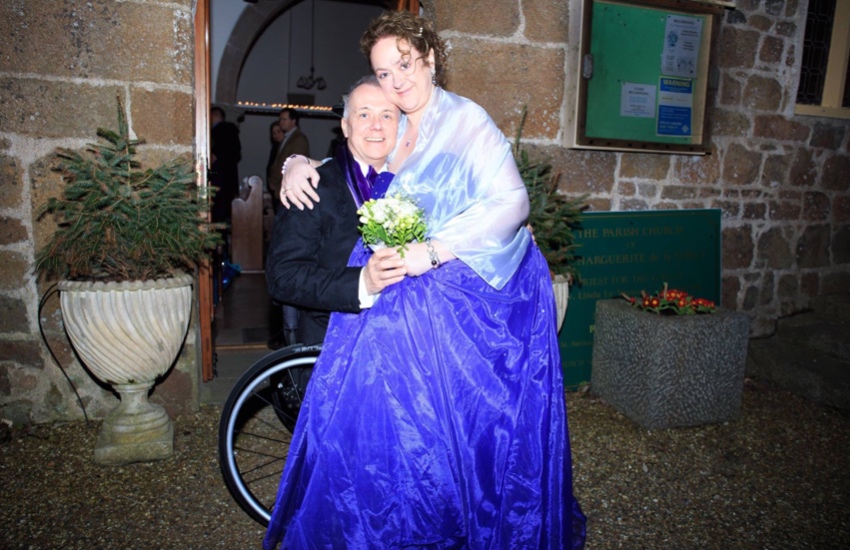
Pictured: Aindre and his wife, Kim, were married on St Patrick's Day eight years ago.
Despite his accident on the day of his final exam, Aindre had already attained enough credits to be awarded a first-class degree.
“In the latter years of my childhood we had the war in Ireland so from around 12-years-old I received no education. I left school at 15, a year before I was allowed, because there was no point in being there, but I knew I wasn’t two planks thick,” he said.
“I was raised bilingual because we spoke Gaelic first and then English. I believe my musical ear allows me to adapt and pick up the nuances of other languages.
“I can sing in 12 different languages; I can’t speak all those languages though. I am currently trying to learn some Japanese which is very difficult, but I love a challenge."
Between leaving school and attending university, Aindre “travelled around doing all different kinds of things to put bread on the table”.
“One thing I always believed is that I was good with people, and I think that’s why I fell into teaching in my latter years."
Aindre has been teaching singing lessons on the island for 13 years, with “virtually all” his lessons given free of charge.
“The majority of people who come to me you can see that their confidence is on the sole of their foot,” he said.
“They’ve been downtrodden or told to mime the words at the back of a choir. I saw that a lot of people weren’t ever getting a chance to get on the big stage, and I wanted to do something to help.”
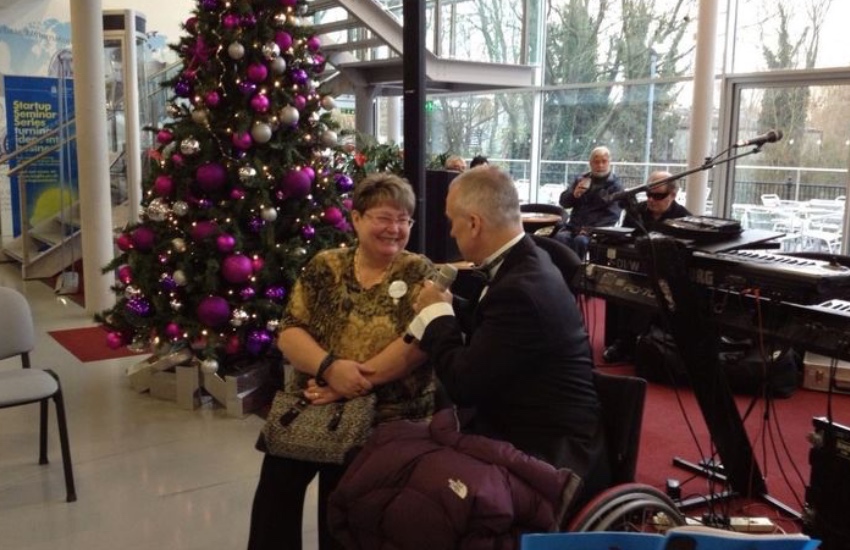
Pictured: Aindre runs 'music as therapy' sessions.
Aindre established the Too Kool Katz musical production group with his now wife, Kim.
“I’ve never been a joiner or been one to be part of cliques. Not everyone is a member of the larger local groups and I saw a good opportunity to set something up to allow other people to have their time on the stage,” he said.
“What I enjoy most is helping people to find their mojo; the thing that they already have within themselves but that might need some help to be encouraged.
“Until covid happened, we had been putting on four shows a year which, bar one, were all self-funded. The one which we were kindly given funding for was through one of the students parents who had a box at Old Trafford, which they auctioned off and gave us the proceeds from.
“The donation allowed us to fund our show and also make a substantial donation to a charity which we were working with at the time. It’s all about trying to help people and also to get seated within the community as a disabled person.”
Aindre also runs ‘music as therapy’ sessions.
“I absolutely love doing music as therapy. There’s no culture on the planet which doesn’t have music somewhere within it,” he said.
“There’s also no compartment in the brain which doesn’t have music within it; it’s part of the essence of what it is to be human.
“I run sessions for people with illnesses such as Parkinson’s Disease, motor neurone disease, dementia and people with stammers. I had one person who could barely introduce themselves because of their stammer but by the end of our sessions they could read a soliloquy from Shakespeare. It was amazing.”
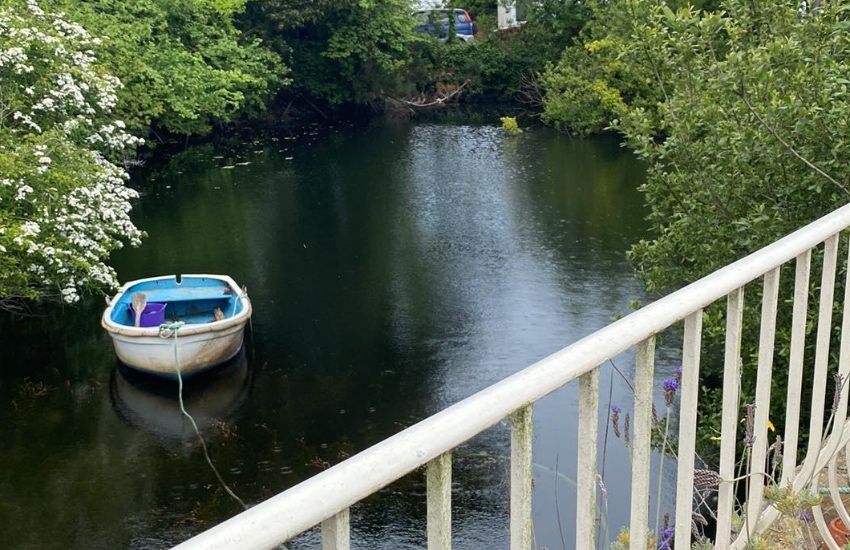
Pictured: Aindre has spent years clearing the quarry behind his property.
By calling on his operatic training, Aindre has developed exercises and breathing techniques for sufferers of Parkinson’s, which are now used globally.
Aside from his accident, Aindre is no stranger to severe illness.
“When I was younger, I became very seriously ill and dropped from 13-stone to 5-stone in three months,” he said.
“I could barely put one foot in front of the other and I was given my last rites by Bishop Daly, who is best known for the image showing him waving a bloodied handkerchief over a victim on Bloody Sunday.
“I had prepared myself to pass away, then just like that everything changed.”
Aindre made a miraculous recovery but was told he would never see 50. He will turn 66 this year.
“I have spent the last thirty years just trying to do good. I ‘ain’t no saint’ by any stretch of the imagination, but I would give someone the shirt off my back if they needed it,” he said.
It would be fair to say that Aindre has sought out challenges throughout his life.
“I lived in France for 10 years restoring a 17th century farmhouse with my partner at the time,” he said.
“I wanted a project that would be challenging for a disabled person. When I was shown the farmhouse I felt as though I had arrived. I love that project, it was great.”
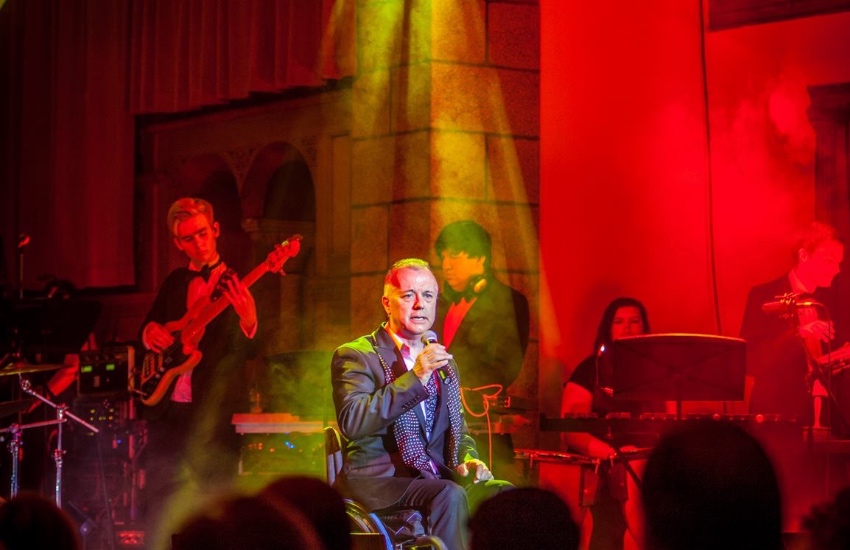
Pictured: Aindre describes performing on stage as his "happy place".
Aindre’s farmhouse was close to a monastery.
“I would go to mass on a near-daily basis. They would have Gregorian chants which were just so incredible to hear and, on special occasions, they would allow me to sing. It was a great honour and a privilege,” he said.
“My greatest claim to fame for singing was that I was invited to sing at a pilgrimage in Lourdes through the Guernsey Jumbulance and I will forever be grateful for that.
“I sang two nights in a row in front of crowds of over 30,000 people. It was the highlight of my life, not just because of the size of the audience, but because I have a faith and singing has helped me to survive everything.”
After his time in France, Aindre trained as a professional access consultant, advising companies, including Network Rail, about disability access.
He has been a champion for disabled rights and inclusivity since moving to the island nearly 15 years ago.
“I moved to Guernsey with my former partner because we were looking for work after the financial crash, during which I lost everything; but at least I was still six-feet above ground,” he said.
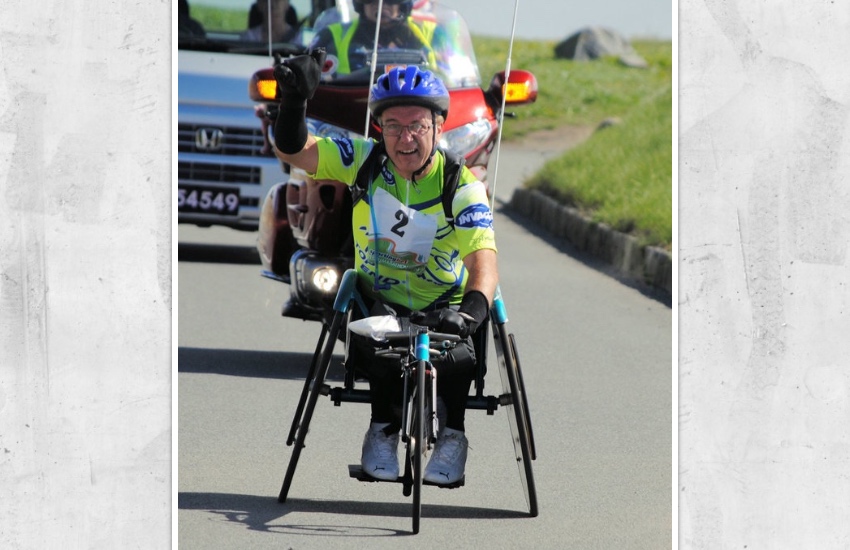
Pictured: Aindre has competed in several full and half marathons locally.
Aindre continued: “I saw the half marathon and full marathon advertised locally and I thought I wouldn’t mind doing that and that it might help to create awareness around disabled people.
“I wanted people to see that disabled people not only can, but they do. I wanted to show that disabled people in Guernsey aren’t just sitting in the corner saying ‘poor me’, we are always doing things.
“I contacted the organisers and asked if I could enter, but they said that there wasn’t a category for me and there certainly were no prizes. I explained that didn’t matter to me, I just wanted to be able to compete.”
Aindre competed his first half marathon in three hours.
“I was using my standard wheelchair so it took a very long time, but I managed it. The next year I shaved half an hour off my time, which I thought was great,” he said.
“I received sponsorship to get a race wheelchair and, once I had that, I was able to half my time.”
Aindre competed in several full and half marathons in his racing wheelchair.
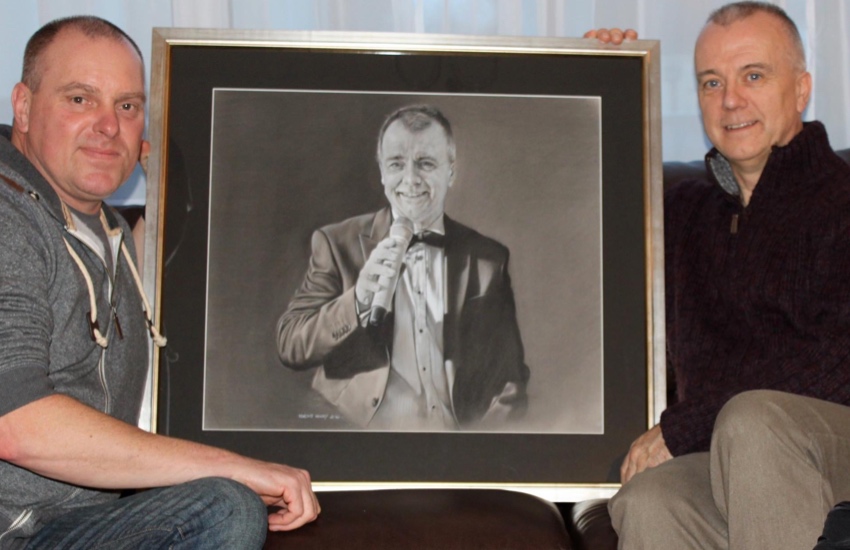
Pictured: Portrait artist Marcus Honey depicted Aindre in one of his pieces.
“The last full marathon I entered, I crashed into a granite wall at the top of Pleinmont Hill at 30-something miles per hour,” said Aindre.
“I was knocked out initially, broke three ribs and tore my arm open. A very kind passerby managed to help me back up and I still finished the race in my fastest time yet.”
When I asked why Aindre chose to finish the race, rather than seek medical attention, he said that he “couldn’t quit”.
“Some people have to lead from the front, and I was there to set an example,” he said.
Aindre competed in a final half marathon before the event became “too dangerous”.
“The racing wheelchair doesn’t have brakes. You brakes are your hands with big heavy gloves on and it simply became too dangerous for me,” he said.
“I would like to do at least one more half marathon, but they have changed the course and it’s inaccessible to wheelchair users because it includes the Val de Terres.
“I was once dared to go up the Val de Terres in my standard wheelchair; I did it twice just to show off. But in a racing wheelchair all the weight is at the back so it would be impossible due to the balance, I would just tip back.
“I think the race oranisers need to think about changing the course to make it more accessible, not easier, but more inclusive.”
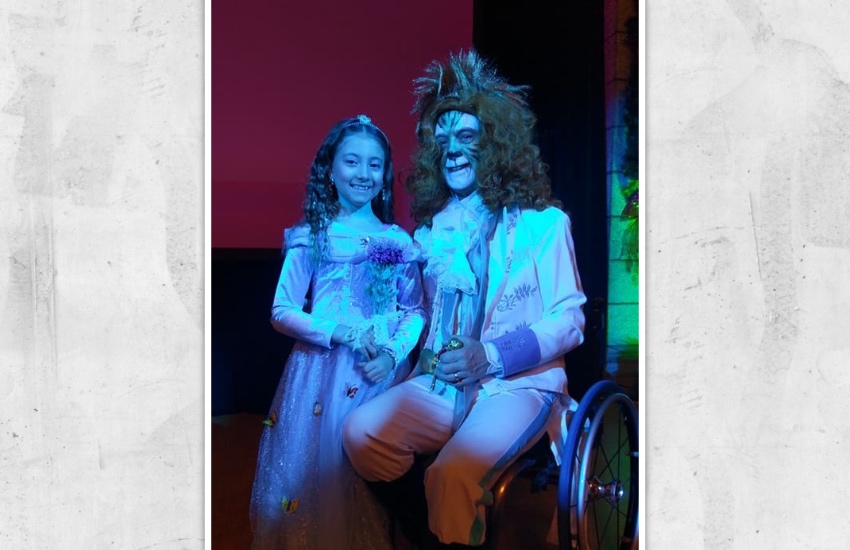
Pictured: Aindre with one of his students.
Aindre has also undertaken other physical challenges.
“I was certainly the first wheelchair-user, and I think first disabled person, to try to swim to Herm,” he said.
“I was going to propose to Kim if I’d managed to get the whole way across, but unfortunately the conditions made it too dangerous. The support boat crew kept saying I needed to stop but I kept saying I’d go for five more minutes.
“Eventually it was too dangerous, and they pulled me out the water; I was devastated.”
Aindre later proposed to Kim in front of an audience of 500 after one of their Too Kool Katz productions.
“It took her 15 seconds to say yes; it was like a lifetime when you’ve asked that in public and I began to feel certain she would say no, but she said yes and we have been happily married for eight years."
Aindre has two daughter in their thirties.
“My eldest daughter is a music professor and the younger one had toured the world as a lyric soprano. She has performed in shows conducted by Placido Domingo,” he said.
“It’s fantastic that they have both ended up following a music path, although I would never have forced that on them.
“If you push children down a certain path then you’re living vicariously through them, and that’s not the natural order of things. Anyone could go outside tomorrow and be killed, so you need to be doing the things that make you happy.”
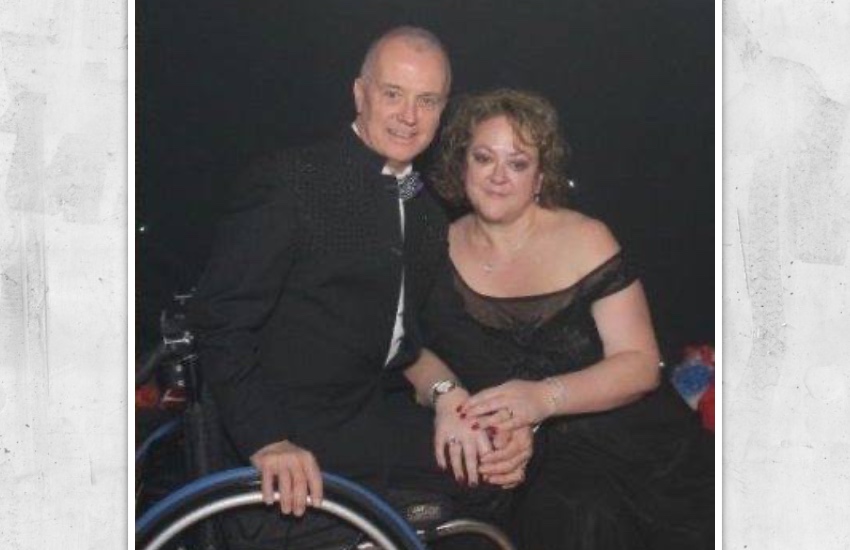
Pictured: Aindre and Kim are both singers and formed the Too Kool Katz production company together.
For a man who has come close to death more than once, I asked Aindre what he believes the meaning of life is.
“An honest, off the cuff, answer would be that life is what you make it,” he said.
“You can standby and watch everyone else or you can go out there and try. It’s important to remember that no one every did anything without failure.
“Life is about embracing failure and learning from anything that didn’t work the way you had hoped it would.
“When I say the Lord’s prayer, I always say ‘forgive us our trespasses as we are supposed to forgive those who trespass against us’, but not everyone does. But I truly believe that forgiveness is one of the greatest traits that a human can have."
Comments
Comments on this story express the views of the commentator only, not Bailiwick Publishing. We are unable to guarantee the accuracy of any of those comments.